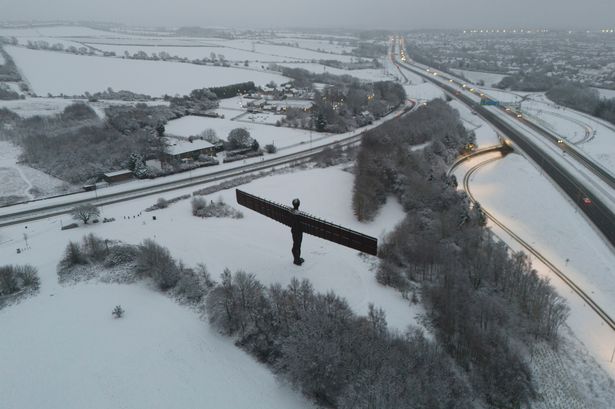The UK experienced a significant snowfall event overnight, blanketing several major cities, including the capital, London, in a layer of white. This wintry blast brought with it a sharp drop in temperatures, plunging the mercury to a frigid -11°C in some areas. The widespread snowfall and sub-zero temperatures caused significant disruption to travel networks, particularly affecting air travel as several airports were forced to temporarily suspend flights. The heavy snow accumulation made runways unsafe for take-off and landing, leading to flight cancellations and delays, stranding passengers and impacting travel plans. The sudden onset of wintery conditions prompted authorities to issue weather warnings, urging residents to exercise caution and avoid unnecessary travel.
The heavy snowfall in London caused widespread disruption to the city’s transport infrastructure. Roads became treacherous, leading to traffic congestion and accidents, while public transport services experienced delays and cancellations. The Underground, typically the city’s lifeline, faced disruptions on several lines due to the adverse weather conditions. Bus routes were also affected, with some services suspended or diverted due to hazardous road conditions. The city’s parks and green spaces were transformed into winter wonderlands, attracting those who braved the cold to enjoy the snowy scenes. However, the heavy snowfall also posed challenges, particularly for the homeless population and vulnerable individuals, highlighting the need for adequate shelter and support during extreme weather events.
Beyond London, other major UK cities also grappled with the impact of the heavy snowfall. Cities like Birmingham, Manchester, and Leeds experienced similar disruptions to transport networks, with road closures and public transport delays reported. The sudden drop in temperatures compounded the challenges posed by the snow, creating icy conditions that further hampered travel and increased the risk of accidents. Schools in affected areas were forced to close, disrupting education and childcare arrangements for many families. The widespread snowfall also impacted businesses, with some forced to close or operate with reduced staff due to the difficult travel conditions.
The severe weather event highlighted the vulnerability of the UK’s infrastructure to extreme winter conditions. The disruption to transport networks, particularly the impact on airports, underscores the need for robust contingency plans to mitigate the impact of such events in the future. The challenges faced by vulnerable populations during the cold snap also emphasized the importance of adequate social safety nets and support services for those in need. The sudden and severe nature of the snowfall served as a stark reminder of the unpredictable nature of British weather and the need for preparedness.
The Met Office issued severe weather warnings across much of the country, advising residents to stay indoors where possible and avoid unnecessary travel. Emergency services were on high alert, responding to incidents related to the adverse weather conditions. The combination of heavy snowfall and sub-zero temperatures created challenging conditions for emergency responders, requiring specialized equipment and expertise to navigate the treacherous conditions. The widespread disruption caused by the snowfall prompted calls for improved infrastructure resilience and better preparedness for extreme weather events.
In the aftermath of the snowfall, efforts focused on clearing roads and restoring transport services. Local councils deployed snowploughs and gritters to clear major routes and ensure the safe passage of essential vehicles. Transport operators worked to reinstate services and minimize disruption to commuters. The event served as a reminder of the importance of community resilience and cooperation in the face of adverse weather. Neighbours helped one another, clearing pathways and checking on vulnerable individuals. The collective response to the snowfall demonstrated the spirit of community and the willingness to support one another during challenging times. The experience also underscored the need for continued investment in infrastructure and emergency preparedness to mitigate the impact of future extreme weather events.














